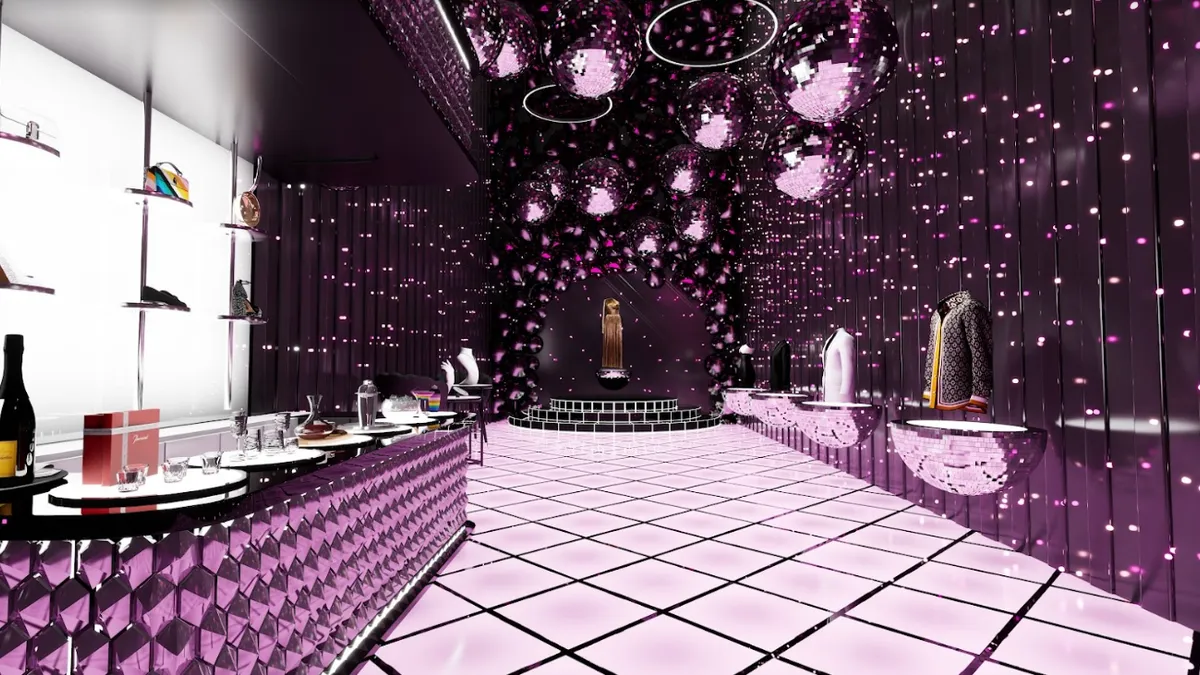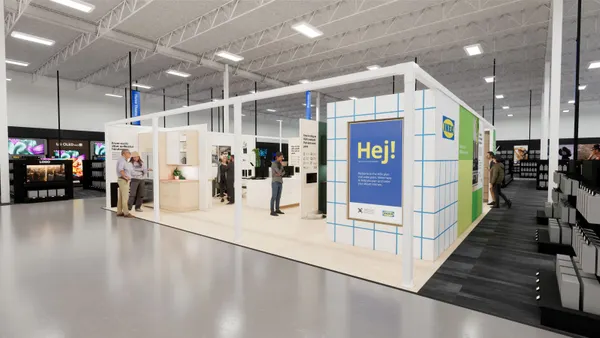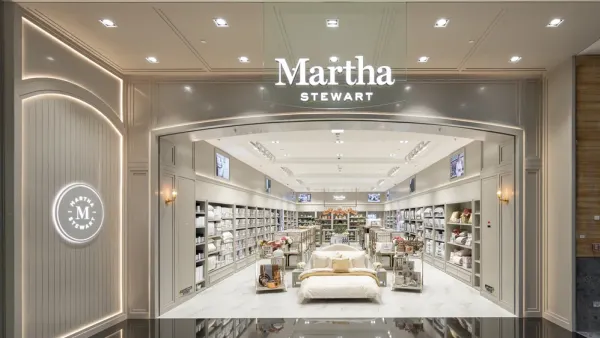Dive Brief:
- Continuing its digital experimentation, Bloomingdale's has tapped virtual experience developer Emperia to create a multi-brand virtual store for the holidays, per a press release shared with Retail Dive.
- The store features virtual spaces for brands like Ralph Lauren, Chanel and Nespresso, as well as a beauty and spa room, and a party room. Virtual visitors to the store can move between each brand through an elevator within the store, according to the announcement.
- At the Ralph Lauren section, shoppers visit a virtual holiday forest that guides them to a ski chalet. In the Nespresso section, visitors are led to a Parisian Cafe, per the press release.
Dive Insight:
Bloomingdale’s partnership with Emperia is part of the retailer’s experimentation with virtual stores. To celebrate Bloomingdale’s 150th anniversary, the two collaborated during New York Fashion Week in September to create a virtual store. The store featured Ralph Lauren, Marc Jacobs, David Yurman and other high-end brands and had virtual games, an anniversary-themed collection and a video showing the retailer’s evolution over time.
“Emperia believes that the multi-brand virtual experience will become the new department store of the future,” Olga Dogadkina, co-founder and CEO of Emperia, said in a statement. “The virtual environment provides endless opportunities for brand creativity, design, and user engagement, breaking barriers of accessibility and physical space limitations — providing a new technology playground for retailers.”
Though visitors can shop different brands and visit different experiences in Bloomingdale’s virtual stores, other elements of virtual shopping are still in development. A July Forrester report predicted that retailers’ virtual shopping experiences will be very immersive 10 years from now, but shoppers still won’t be able to travel from one virtual environment to another with their digital goods. The report also cautioned that consumers may not use or feel comfortable within metaverse environments.
It’s not very clear to what extent consumers are interested in the metaverse. A Wunderman Thompson Intelligence survey released last year found that just over a third (38%) of consumers know of the metaverse concept, but 79% of Gen Z consumers and 80% of millennials said their daily lives depend on technology. A Piper Sandler survey found that 26% of teens own a virtual reality device, but only 5% use it daily. About half (48%) of the teenagers Piper Sandler surveyed are either not sure about or not interested in the metaverse.












